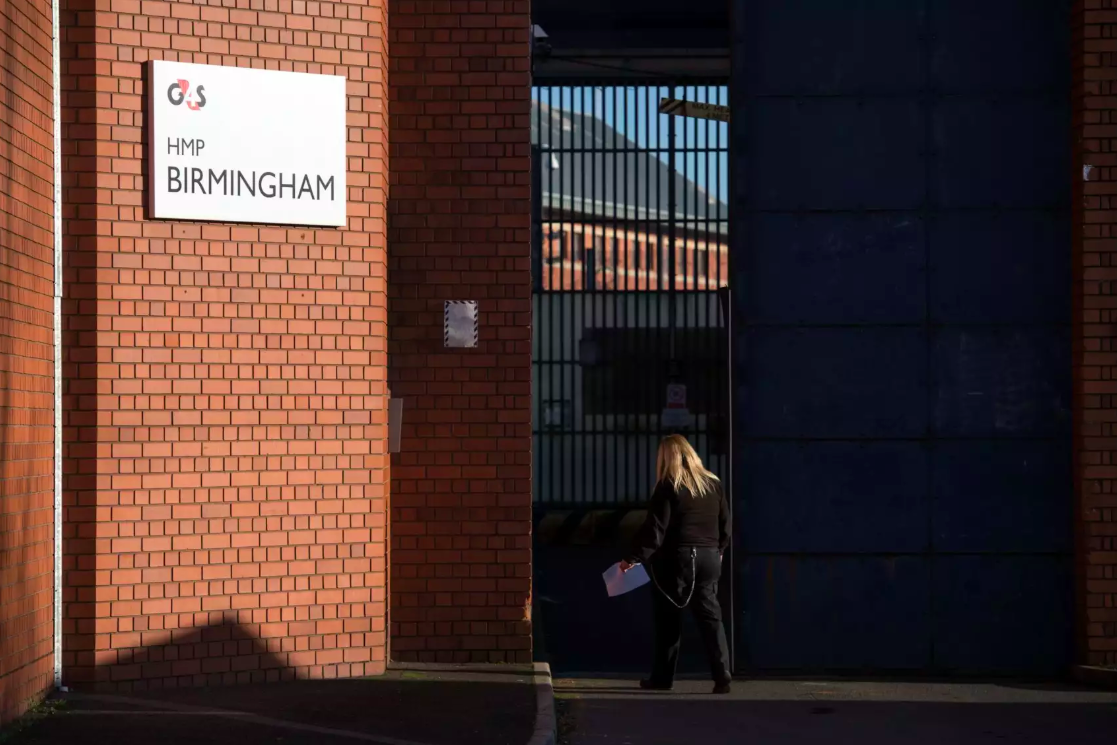Last month, the U.K.’s Ministry of Justice seized control of Birmingham prison from its private operator, G4S. A stunning report from the Chief Inspector of Prisons documented astronomical levels of violence, rampant drug addiction, overheated cells, smashed windows, and blood, cockroaches and dirt wallowing in the cells and showers. “Living conditions,” said the Inspector, are “as poor as we have seen anywhere in recent years.”
Cue a slew of denunciations of prison privatization. The episode demonstrated the “rotten core of privatization,” said the Independent. “The crisis in the English prison system, is a combination of failures caused both by privatization and also by public sector austerity,” editorialized the Guardian. Labour’s Shadow Justice Secretary Richard Burgon called on the government to “scrap its recently announced plans to build yet more private prisons.”
But to what extent is privatization the issue here? And does a focus on privatization divert away from more fundamental problems with the use of prison as a way of disappearing social, economic, and political difficulties?
Privatisation and Austerity
Some commentators have been quick to dismiss the critics of privatization, pointing out that a range of public prisons is in similarly dire straits. A report into the publicly-run prison in Liverpool earlier this year, for example, found “squalid living conditions,” “infestations of cockroaches,” and part of the jail that “had become so dirty, infested and hazardous to health that it could not be cleaned.”
A report into HM Prison Nottingham, also public, found widespread drug use, shockingly high levels of self-harm, and nearly half of prisoners surveyed reporting some form of bullying or abuse by staff. The Chief Inspector even took the unprecedented step of suggesting that the prison’s spate of suicides – nine since February 2016 – may have been caused by the “dangerous, drug-ridden” prison regime itself.
It is also true that private prisons, by most measures, “perform” as well as public ones. Prison conditions vary widely across the private and public sector, and most analyses have failed to find any consistent difference between the two.
That said, privatization has affected the entire prison estate, as public prisons alter their internal regime in the face of competition from private companies like G4S, Serco, and Sodexo – a point not registered in a simple comparison of the two sectors. Private contractors are also notoriously opaque, able to hide behind “commercial sensitivity” exemptions to freedom of information laws.
Austerity also appears to be playing a role in the current crisis: a substantial deterioration in conditions across English and Welsh prisons – with the highest numbers of deaths, assaults, and self-harm ever recorded – has largely come about since the coalition government’s programme of cuts to the Ministry of Justice, with budgets and staffing numbers slashed.
But the problems with the prison system run far deeper than any of these superficial or precipitate causes. English and Welsh prisons were a brutal, overcrowded mess in the pre-privatisation 1980s, despite substantially higher levels of staffing and resources. Conditions were so bad by the end of the decade that a series of mass riots brought sections of the estate to its knees.
Calls for de-privatization, expanded staffing, and increased funding are only likely to reinforce the fundamental cause of the horrors: prison itself.
Public, Private, or no Prison?
At one point in the early 1970s, people across the political spectrum began to imagine a prison-free world. Rather than placing our hopes in the public prison system, we ought to look to this rich abolitionist tradition.
As the Guardian noted, complaints about prison conditions in Birmingham could be heard as early as 1776. An 1853 Royal Commission looked at the same Birmingham prison in the news today and found a “regime of terror,” as academic John Moore describes it, with punishments including “flogging boys repeatedly and hanging women from the landing railings in a straightjacket.”
In fact, a look at nearly any of Britain’s major carceral institutions, past and present – from migrant detention to adult prison – reveals brutality, violence, and revolt. Despite the utter myth peddled by conservative writers that British prisons have become cushy holiday camps for soft rehabilitation, they remain hidden sites of suffering, mental degradation, and death. Since the 1980s, the use of prison as a site for millions of human beings across the globe has expanded to historically unseen proportions. The U.K., for its part, has the highest rate of incarceration in Western Europe, with a massive increase in use since 1990.
The U.K. routinely locks up tens of thousands of humans – a third of them with learning difficulties – in tiny six by ten foot cells, often for 22 hours a day and in overcrowded conditions. Over 70 percent of prisoners are convicted for non-violent offenses, black people are 50 percent more likely than white people to be incarcerated, a prisoner commits suicide every five days, and a prisoner’s average life expectancy, at 56, is lower than war-wracked South Sudan. These facts are symptoms of a prison system designed to punish the poor, the racialized, and the marginalized. They are inherent products of prison.
https://www.youtube.com/watch?v=2jDBabOu4Vo&t=1344s
There is little to no evidence that “rehabilitation” does or can ever work. The reasons people commit criminalized acts vary widely, from instantaneous acts of passion to a general break down in a person’s life circumstances to wider social, economic, and political shifts. Few, if any of these causes are addressed by throwing people inside some of the most complete and brutal institutions of social control humanity has ever devised. At best, only around 3 percent of criminalized acts will ever end in a prosecution, and many people in contact with the criminal legal system – academics, practitioners, victims, and criminals – realize that it fails according to its own ends.
This won’t be solved by additional funding or any amount of extra prison officers – people who often become inured to the humanity of prisoners and, like subjects in the Milgram experiment, mete out brutal violence and abuse to those in their care. Public prisons are just as bad as private ones.
The prison crisis – of which Birmingham is only one instantiation – is being diverted into an argument about the (de)merits of privatization. In a recent parliamentary debate, only two backbench Conservative MPs had the courage to voice the obvious fact that our unprecedented incarceration rates need to be brought down. The Labour Party, for its part, is single-mindedly attacking outsourcing, to the exclusion of any wider critique of the criminal legal system.
We have to begin experimenting with an entire rethink of how we approach harmful societal acts. Immediate decriminalization of non-violent crimes (like public order and drug offenses), centering the massive suffering engendered by larger political and economic institutions, and investment in community support and public services could be places to start. Whatever we do, looking to public prisons to solve our problems is likely to be as much use as repeatedly smashing our collective head against the brick walls of Wormwood Scrubs jail.
Disclaimer: The views and opinions expressed here are those of the author and do not necessarily reflect the editorial position of The Globe Post.




















